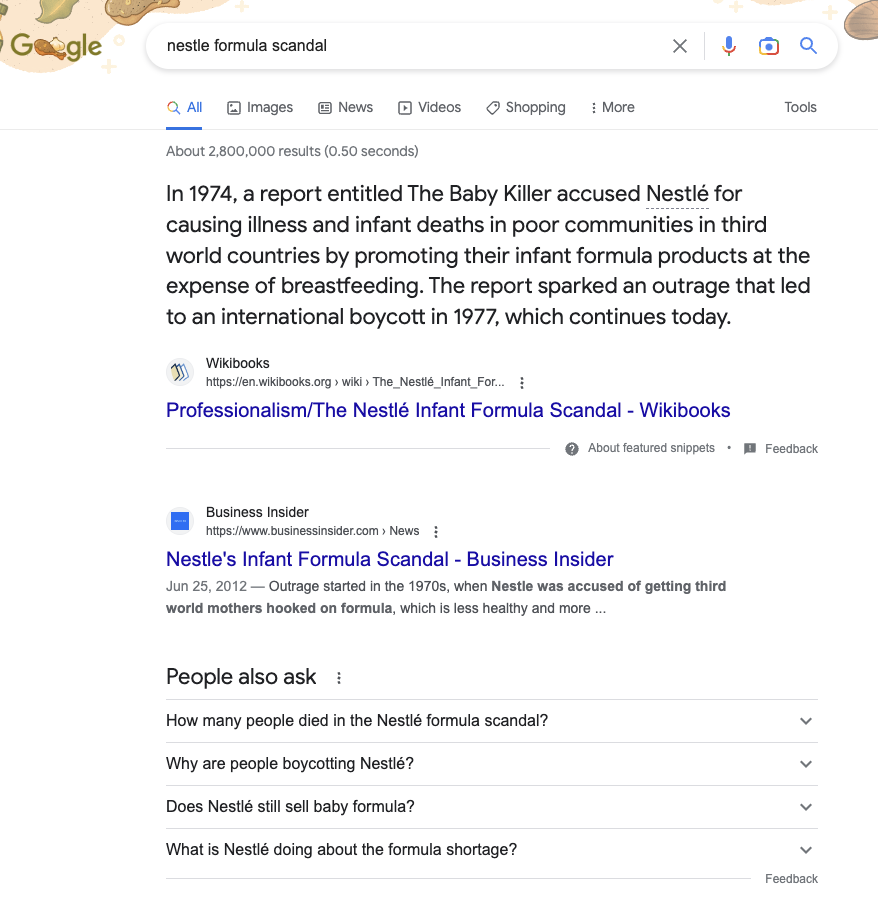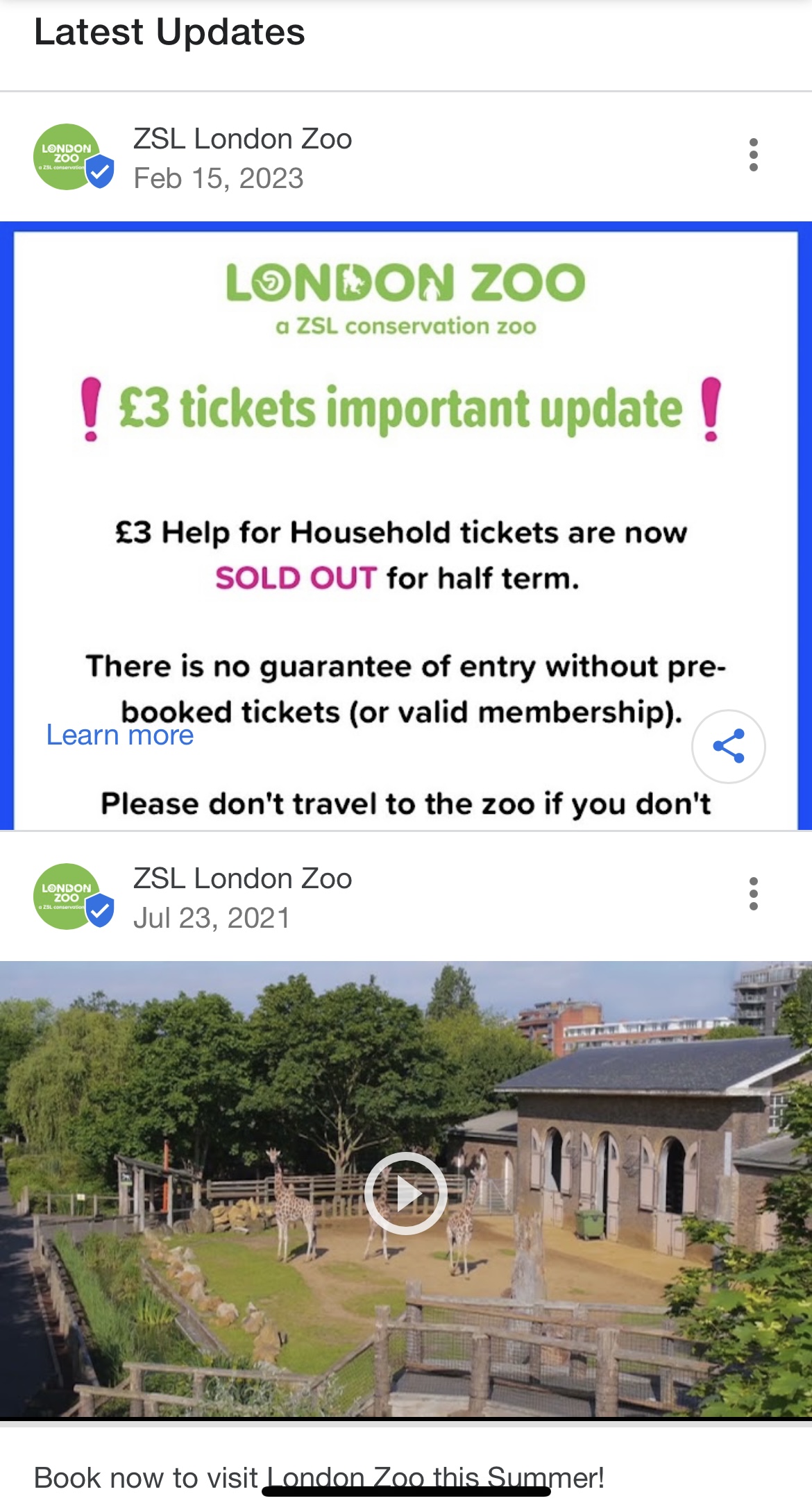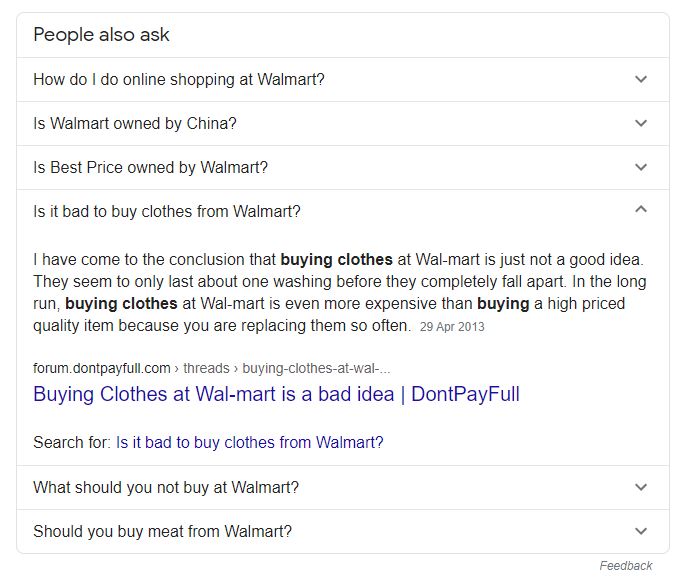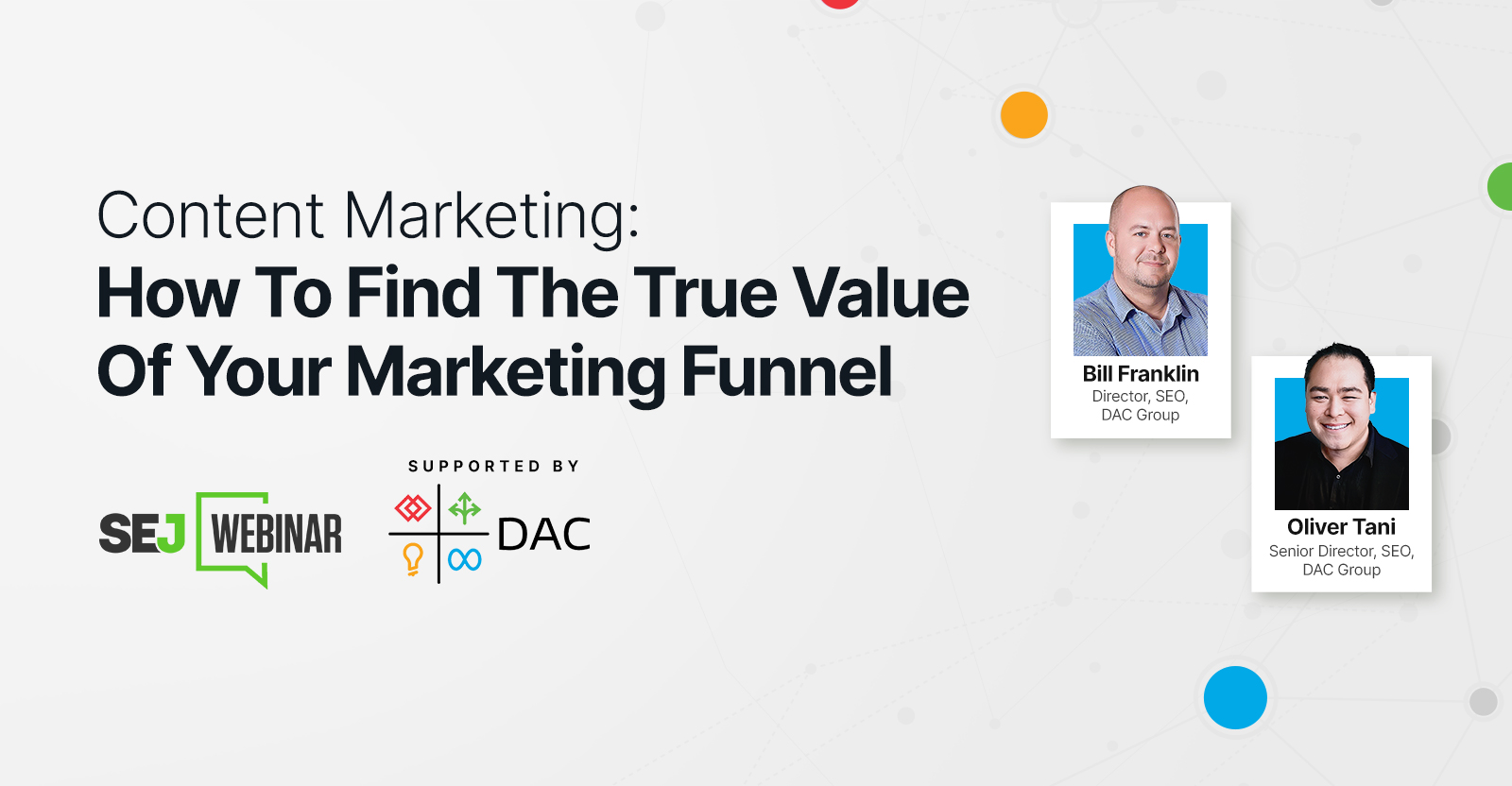SEO
SEO & Reputation Management: An In-Depth Guide

All forms of marketing play a part in good brand management.
Using the same tone of voice throughout your ads and emails and choosing the same photo assets for your website as your billboards contribute to the picture painted when a customer considers your product or service.
Sometimes, however, your brand might be in receipt of some negative press or reviews that can alter the way it is seen.
If a potential customer wants to know if your business is reputable, they will likely search for you online.
Visiting your website isn’t enough; they’ll want more objective feedback.
So, online reputation management is critical.
It is the process of shaping and controlling the narrative around your brand online.
SEO is an important step to consider in that process.
What Is Reputation Management In SEO?
Reputation management in SEO is all about ensuring that wherever a searcher encounters their brand in the search engine results pages (SERPs), they take away a positive message about it.
This often means ensuring that the brand influences the front page of the SERPs and the articles pushed in Discover feeds, as well as the News results.
Why Is Reputation Management Important For SEO?
Online reputation management (ORM) is critical for SEO because, no matter how good a website ranks, if the perception of its brand is negative, it will struggle to get clicks.
SEO professionals must stay aware of how the brand they are working on is perceived elsewhere on the internet.
If there is negative sentiment about the brand, it is unlikely that a good call to action in a page title will be enough to get a click.
It’s also important to realize that organic traffic that doesn’t convert will not be very valuable.
A brand’s online reputation can have a huge impact on conversions.
Research into a brand, product, or service often begins online with a search.
Your website will likely only be one or two of the results brought up when someone searches for your brand.
All those other search results will potentially say something about your brand that might not be as favorable as you would like.
For Corporate Brands
Negative reviews happen.
Unfavorable comparisons between your product and a competitor can be made by an objective third party.
Bad press can be high-ranking.
If you aren’t actively monitoring what appears at the top of the search results for your branded keywords then you could be missing out on the opportunity to spot potential reputation issues.
Once a news story starts circulating about your company, or even incorrect information is added to a third-party website, it can be hard to repair the damage to your brand.
It is important that your brand’s message is what’s seen on the first page of the SERPs.
Proactively working on your online reputation management can put you in a strong position to correct misinformation or outrank unfavorable content.
Don’t Forget Your Personal Brand
This all applies to your personal brand as well as your corporate one.
You need to ensure that the information available online paints a positive picture.
We’re all getting very good at portraying ourselves positively on social media.
Photoshopping images, curating our life highlights, and only sharing information that paints us positively.
Employers and recruiters are increasingly visiting social media profiles when considering candidates for a job.
But what about when someone searches your name? What comes up on the first page of the SERPs?
How Does SEO Support Online Reputation Management?
SEO and online reputation management go hand in hand.
Oftentimes, a search engine will be the first encounter a potential new customer will have with a brand.
For ORM to be successful, a brand needs to control what is displayed in the search engines when a user searches for something related to that brand.
That’s where SEO comes in. SEO strategy often focuses on ensuring we are maximizing the value of the real estate available on the SERPs.
Verifying Facts And Displacing Rumors
ORM is all about owning and managing a brand’s reputation online. That reputation can be discussed anywhere online and often on social media.
SEO is still important here because if someone reads a discussion that impacts a brand’s reputation, they may turn to a search engine for further research into the validity of the claims.
For example, Nestle is often the subject of heated discussions around the ethics of large corporations.
Start typing [Nestle formula] into Google, and you may find the following autocomplete suggestion:
If you search with that phrase, you might be presented with search results similar to these:
 Screenshot from search for [Nestle formula scandal], Google, March 2023
Screenshot from search for [Nestle formula scandal], Google, March 2023In this instance, it would be prudent for Nestle to address this scandal accusation directly themselves by using SEO.
They could either create a page that directly addresses the scandal, or they could influence the message of the results by giving quotes for the already ranking articles.
Recovering From A Negative Review
We’ve all had it: Our usually pristine Google Business Profile 5-star review score was marred by a totally unfair 1-star review.
No matter how unfair you believe the review to be, it needs addressing.
Getting The Negative Reviews Removed
Sometimes, the job of the SEO is to get the review removed if it is genuinely unjustified; for example, it contravenes the review system guidelines.
For Google, this might be that a direct competitor or a disgruntled employee left the review.
For sites like TrustPilot, it might be because the reviewer cannot be identified, and therefore, the review might not be based on a genuine experience of the product or service.
Replying To The Review
Sometimes, the job of an SEO is to address a reviewer’s misunderstanding.
Other times, it is better just to hold your hands up and address the complaints that were raised honestly.
This can show that a business listens to feedback and makes positive changes to prevent similar issues from happening again.
I won’t tell you how to get your website to rank for your brand term, just that you need to. That can be particularly tricky if your brand name is a word that means something in your or another language.
It can be especially difficult if your brand name isn’t that unique.
You do want to be ranked as close to position one as possible for your brand name, however. This way, the first result (excluding paid results) for your brand name is a property that you control.
That said, you want positions two, three, four, and five to be properties you own, too.
6 Search Engine Reputation Management Tips
1. Control The Front Page
Wherever possible, the first five or so top-ranking results for your brand should be controlled by you – your website, any other digital properties you host, and your social media pages.
If a potential customer is looking for information on your brand you want to maintain the information they read. This means taking advantage of the prominent social media sites in your region.
Set up branded Facebook, LinkedIn, and Twitter profiles. These social media sites are hugely authoritative and will rank highly for most branded search queries.
Don’t just settle for a social media presence, though.
Set your company up with a profile on review and industry comparison sites, essentially any property outside of your direct ownership that you can still have some say over the content of.
2. Be Active On Social Media & Review Sites
Setting yourself up on social media and review sites does come with risk.
People will comment, and reviews will be left. They will not all be favorable.
However, even if you do not have an official Twitter handle or a company-created Glassdoor page doesn’t mean competitors or disgruntled employees won’t be talking about your company anyway.
You might just have less visibility of it.
Make sure you are responding to comments – positive and negative.
A negative Twitter comment might be returned in a Google search for your brand.
Keep your company active on social media and review sites both to address any negative comments and to keep them off the front page of Google.
3. Set Up A Google Business Profile
This is another area of the branded search results you can own.
Your Google Business Profile listing could be the first result a user sees when searching for your brand.
Around festive holidays, or even during the COVID-19 restrictions, your opening hours or the availability of your office might change.
Google Business Profiles are the perfect place to keep that information updated.
If you don’t have a Google Business Profile listing, searching for “[your brand] opening hours” might pull information from a website that hasn’t been updated.
Google Posts
Another benefit to a Google Business Profile for reputation management is Google Posts.
Posts are small snippets of content that will appear directly on your Google Business Profile listing.
 Screenshot from mobile search for [ZSL London Zoo], Google, February 2023
Screenshot from mobile search for [ZSL London Zoo], Google, February 2023They allow your brand to inject timely offers, articles, or updates straight into the Google search results without battling the ranking algorithm or waiting for indexing.
If you need some reactive PR or want to promote something quickly, this is an effective way to do that.
Reviews
A Google Business Profile listing does bring with it the potential for reviews of your brand to appear at the top of the SERPs.
If a user leaves a review on your Google Business Profile there is little that can be done to remove it.
It would need to contravene Google’s review guidelines in some way, and even then, there is no guarantee Google will rule it as such.
Good reputation management is about effectively dealing with negative attention as much as positive.
A negative review can be responded to on Google Business Profile, allowing your brand to turn a negative experience into a positive one.
Questions & Answers
Google Business Profiles also feature a Q&A section where the public can submit questions to your listing.
The main issue with this is the public can also answer those questions. This is a good opportunity to understand your target audience’s interest, but it is a very public way to find out.
It is crucial that you stay on top of any questions asked so you can ensure the answer is accurate.
There is nothing to stop a well-meaning (or ill-intending) member of the public from answering a question and answering it wrong.
Ensure you manage your online reputation well by keeping an eye on this corner of the SERPs.
4. Create Content Around Potentially Negative Keywords
Brand searches often yield a series of People Also Asked (PAA) search prompts.
The PAA results are a goldmine of information for your reputation management keyword analysis. These prompts can cause searches to consider questions about the brand they may never have asked.
For instance, since I’m based in the U.K., I have little exposure or understanding of the brand Walmart.
However, searching the keyword “Walmart” produces these PAAs.
 Screenshot from search for [Walmart], Google, February 2023
Screenshot from search for [Walmart], Google, February 2023Prior to seeing this PAA, I would not have known that some people may consider it a bad idea to buy clothes from the brand.
I do now.
The question “Is it bad to buy clothes from Walmart?” is off-putting for someone who doesn’t know much about the store, and the search result it features is even worse.
Other common PAAs that will appear for brand searches include “Is [brand] legit?,” “is [brand] a scam?,” and “Can I cancel [brand] subscription?”
Your potential customer might not have any reason to consider your brand a scam, but seeing those questions that others have searched may raise that concern.
Check the PAAs that appear for your brand. If they are even slightly negative you need to ensure you are ranking as the featured snippet for them to counter that notion.
5. Be Newsworthy For The Right Reasons
If you are trying to bury a high-ranking negative news article that is grounded in fact, many will have little sympathy for you.
Instead, work on being newsworthy for the right reasons.
Gain press about your charitable giving, your encouragement of local teams, or your work to protect the environment.
Focus on digital PR for PR’s sake, even if all you get is a brand mention.
If it is on a high authority website, it might be enough to outrank review sites, comparison sites, and other more dangerous properties for your brand terms.
The key is stacking the front page with positive commentary on your brand beyond the properties you have direct control over.
Set Up A Brand Alert
Using Google Alerts or other brand mention monitoring tools, keep an eye out for when you’re mentioned online.
It may be that a journalist or reviewer will be amenable to hearing your side of a negative story.
It might simply be that your company opening hours have been misreported or other inaccuracies stated.
That alert could give you the opportunity to correct misinformation or damaging accusation before it is too widely read.
6. It’s Not All About Google
Don’t forget that there are other search engines aside from Google. Make sure you are following these steps for those search engines, too.
Set up a Bing Places listing and monitor the first page of DuckDuckGo for your brand phrases.
If there is the potential for your brand to be searched in a different search engine, it is critical that you manage your reputation there.
Conclusion
It is absolutely imperative that you consider online reputation management as part of your SEO strategy. It’s also critical that brand marketers understand the important part that SEO plays in brand perception.
SEO and ORM must work hand-in-hand. Otherwise, the time and effort spent on both could go to waste.
Make sure you are factoring both of these into your ongoing marketing strategy.
More Resources:
Featured Image: The Sense Production/Shutterstock
SEO
Measuring Content Impact Across The Customer Journey

Understanding the impact of your content at every touchpoint of the customer journey is essential – but that’s easier said than done. From attracting potential leads to nurturing them into loyal customers, there are many touchpoints to look into.
So how do you identify and take advantage of these opportunities for growth?
Watch this on-demand webinar and learn a comprehensive approach for measuring the value of your content initiatives, so you can optimize resource allocation for maximum impact.
You’ll learn:
- Fresh methods for measuring your content’s impact.
- Fascinating insights using first-touch attribution, and how it differs from the usual last-touch perspective.
- Ways to persuade decision-makers to invest in more content by showcasing its value convincingly.
With Bill Franklin and Oliver Tani of DAC Group, we unravel the nuances of attribution modeling, emphasizing the significance of layering first-touch and last-touch attribution within your measurement strategy.
Check out these insights to help you craft compelling content tailored to each stage, using an approach rooted in first-hand experience to ensure your content resonates.
Whether you’re a seasoned marketer or new to content measurement, this webinar promises valuable insights and actionable tactics to elevate your SEO game and optimize your content initiatives for success.
View the slides below or check out the full webinar for all the details.
SEO
How to Find and Use Competitor Keywords

Competitor keywords are the keywords your rivals rank for in Google’s search results. They may rank organically or pay for Google Ads to rank in the paid results.
Knowing your competitors’ keywords is the easiest form of keyword research. If your competitors rank for or target particular keywords, it might be worth it for you to target them, too.
There is no way to see your competitors’ keywords without a tool like Ahrefs, which has a database of keywords and the sites that rank for them. As far as we know, Ahrefs has the biggest database of these keywords.
How to find all the keywords your competitor ranks for
- Go to Ahrefs’ Site Explorer
- Enter your competitor’s domain
- Go to the Organic keywords report
The report is sorted by traffic to show you the keywords sending your competitor the most visits. For example, Mailchimp gets most of its organic traffic from the keyword “mailchimp.”


Since you’re unlikely to rank for your competitor’s brand, you might want to exclude branded keywords from the report. You can do this by adding a Keyword > Doesn’t contain filter. In this example, we’ll filter out keywords containing “mailchimp” or any potential misspellings:


If you’re a new brand competing with one that’s established, you might also want to look for popular low-difficulty keywords. You can do this by setting the Volume filter to a minimum of 500 and the KD filter to a maximum of 10.


How to find keywords your competitor ranks for, but you don’t
- Go to Competitive Analysis
- Enter your domain in the This target doesn’t rank for section
- Enter your competitor’s domain in the But these competitors do section


Hit “Show keyword opportunities,” and you’ll see all the keywords your competitor ranks for, but you don’t.


You can also add a Volume and KD filter to find popular, low-difficulty keywords in this report.


How to find keywords multiple competitors rank for, but you don’t
- Go to Competitive Analysis
- Enter your domain in the This target doesn’t rank for section
- Enter the domains of multiple competitors in the But these competitors do section


You’ll see all the keywords that at least one of these competitors ranks for, but you don’t.


You can also narrow the list down to keywords that all competitors rank for. Click on the Competitors’ positions filter and choose All 3 competitors:


- Go to Ahrefs’ Site Explorer
- Enter your competitor’s domain
- Go to the Paid keywords report


This report shows you the keywords your competitors are targeting via Google Ads.
Since your competitor is paying for traffic from these keywords, it may indicate that they’re profitable for them—and could be for you, too.
You know what keywords your competitors are ranking for or bidding on. But what do you do with them? There are basically three options.
1. Create pages to target these keywords
You can only rank for keywords if you have content about them. So, the most straightforward thing you can do for competitors’ keywords you want to rank for is to create pages to target them.
However, before you do this, it’s worth clustering your competitor’s keywords by Parent Topic. This will group keywords that mean the same or similar things so you can target them all with one page.
Here’s how to do that:
- Export your competitor’s keywords, either from the Organic Keywords or Content Gap report
- Paste them into Keywords Explorer
- Click the “Clusters by Parent Topic” tab


For example, MailChimp ranks for keywords like “what is digital marketing” and “digital marketing definition.” These and many others get clustered under the Parent Topic of “digital marketing” because people searching for them are all looking for the same thing: a definition of digital marketing. You only need to create one page to potentially rank for all these keywords.


2. Optimize existing content by filling subtopics
You don’t always need to create new content to rank for competitors’ keywords. Sometimes, you can optimize the content you already have to rank for them.
How do you know which keywords you can do this for? Try this:
- Export your competitor’s keywords
- Paste them into Keywords Explorer
- Click the “Clusters by Parent Topic” tab
- Look for Parent Topics you already have content about
For example, if we analyze our competitor, we can see that seven keywords they rank for fall under the Parent Topic of “press release template.”


If we search our site, we see that we already have a page about this topic.


If we click the caret and check the keywords in the cluster, we see keywords like “press release example” and “press release format.”


To rank for the keywords in the cluster, we can probably optimize the page we already have by adding sections about the subtopics of “press release examples” and “press release format.”
3. Target these keywords with Google Ads
Paid keywords are the simplest—look through the report and see if there are any relevant keywords you might want to target, too.
For example, Mailchimp is bidding for the keyword “how to create a newsletter.”


If you’re ConvertKit, you may also want to target this keyword since it’s relevant.
If you decide to target the same keyword via Google Ads, you can hover over the magnifying glass to see the ads your competitor is using.


You can also see the landing page your competitor directs ad traffic to under the URL column.


Learn more
Check out more tutorials on how to do competitor keyword analysis:
SEO
Google Confirms Links Are Not That Important

Google’s Gary Illyes confirmed at a recent search marketing conference that Google needs very few links, adding to the growing body of evidence that publishers need to focus on other factors. Gary tweeted confirmation that he indeed say those words.
Background Of Links For Ranking
Links were discovered in the late 1990’s to be a good signal for search engines to use for validating how authoritative a website is and then Google discovered soon after that anchor text could be used to provide semantic signals about what a webpage was about.
One of the most important research papers was Authoritative Sources in a Hyperlinked Environment by Jon M. Kleinberg, published around 1998 (link to research paper at the end of the article). The main discovery of this research paper is that there is too many web pages and there was no objective way to filter search results for quality in order to rank web pages for a subjective idea of relevance.
The author of the research paper discovered that links could be used as an objective filter for authoritativeness.
Kleinberg wrote:
“To provide effective search methods under these conditions, one needs a way to filter, from among a huge collection of relevant pages, a small set of the most “authoritative” or ‘definitive’ ones.”
This is the most influential research paper on links because it kick-started more research on ways to use links beyond as an authority metric but as a subjective metric for relevance.
Objective is something factual. Subjective is something that’s closer to an opinion. The founders of Google discovered how to use the subjective opinions of the Internet as a relevance metric for what to rank in the search results.
What Larry Page and Sergey Brin discovered and shared in their research paper (The Anatomy of a Large-Scale Hypertextual Web Search Engine – link at end of this article) was that it was possible to harness the power of anchor text to determine the subjective opinion of relevance from actual humans. It was essentially crowdsourcing the opinions of millions of website expressed through the link structure between each webpage.
What Did Gary Illyes Say About Links In 2024?
At a recent search conference in Bulgaria, Google’s Gary Illyes made a comment about how Google doesn’t really need that many links and how Google has made links less important.
Patrick Stox tweeted about what he heard at the search conference:
” ‘We need very few links to rank pages… Over the years we’ve made links less important.’ @methode #serpconf2024″
Google’s Gary Illyes tweeted a confirmation of that statement:
“I shouldn’t have said that… I definitely shouldn’t have said that”
Why Links Matter Less
The initial state of anchor text when Google first used links for ranking purposes was absolutely non-spammy, which is why it was so useful. Hyperlinks were primarily used as a way to send traffic from one website to another website.
But by 2004 or 2005 Google was using statistical analysis to detect manipulated links, then around 2004 “powered-by” links in website footers stopped passing anchor text value, and by 2006 links close to the words “advertising” stopped passing link value, links from directories stopped passing ranking value and by 2012 Google deployed a massive link algorithm called Penguin that destroyed the rankings of likely millions of websites, many of which were using guest posting.
The link signal eventually became so bad that Google decided in 2019 to selectively use nofollow links for ranking purposes. Google’s Gary Illyes confirmed that the change to nofollow was made because of the link signal.
Google Explicitly Confirms That Links Matter Less
In 2023 Google’s Gary Illyes shared at a PubCon Austin that links were not even in the top 3 of ranking factors. Then in March 2024, coinciding with the March 2024 Core Algorithm Update, Google updated their spam policies documentation to downplay the importance of links for ranking purposes.
The documentation previously said:
“Google uses links as an important factor in determining the relevancy of web pages.”
The update to the documentation that mentioned links was updated to remove the word important.
Links are not just listed as just another factor:
“Google uses links as a factor in determining the relevancy of web pages.”
At the beginning of April Google’s John Mueller advised that there are more useful SEO activities to engage on than links.
Mueller explained:
“There are more important things for websites nowadays, and over-focusing on links will often result in you wasting your time doing things that don’t make your website better overall”
Finally, Gary Illyes explicitly said that Google needs very few links to rank webpages and confirmed it.
I shouldn’t have said that… I definitely shouldn’t have said that
— Gary 鯨理/경리 Illyes (so official, trust me) (@methode) April 19, 2024
Why Google Doesn’t Need Links
The reason why Google doesn’t need many links is likely because of the extent of AI and natural language undertanding that Google uses in their algorithms. Google must be highly confident in its algorithm to be able to explicitly say that they don’t need it.
Way back when Google implemented the nofollow into the algorithm there were many link builders who sold comment spam links who continued to lie that comment spam still worked. As someone who started link building at the very beginning of modern SEO (I was the moderator of the link building forum at the #1 SEO forum of that time), I can say with confidence that links have stopped playing much of a role in rankings beginning several years ago, which is why I stopped about five or six years ago.
Read the research papers
Authoritative Sources in a Hyperlinked Environment – Jon M. Kleinberg (PDF)
The Anatomy of a Large-Scale Hypertextual Web Search Engine
Featured Image by Shutterstock/RYO Alexandre
-

 PPC5 days ago
PPC5 days ago19 Best SEO Tools in 2024 (For Every Use Case)
-

 MARKETING6 days ago
MARKETING6 days agoStreamlining Processes for Increased Efficiency and Results
-
SEARCHENGINES6 days ago
Daily Search Forum Recap: April 17, 2024
-

 SEO6 days ago
SEO6 days agoAn In-Depth Guide And Best Practices For Mobile SEO
-

 PPC6 days ago
PPC6 days ago97 Marvelous May Content Ideas for Blog Posts, Videos, & More
-
SEARCHENGINES5 days ago
Daily Search Forum Recap: April 18, 2024
-

 MARKETING6 days ago
MARKETING6 days agoEcommerce evolution: Blurring the lines between B2B and B2C
-
SEARCHENGINES4 days ago
Daily Search Forum Recap: April 19, 2024















